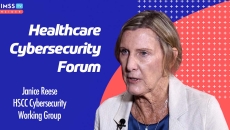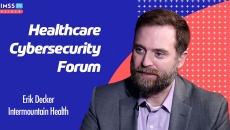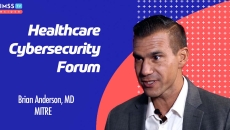HIMSS TV
Nicholas Bunger, data engineer at Balgrist University Hospital, said the five-year journey to EMRAM Stage 6 status has resulted in more efficient operations and has enabled better reactivity among clinical experts.
Todd Gottula, president and cofounder of Clarify Health, says obtaining and cleansing data assets can drive better outcomes, but the presentation matters almost as much as the data itself.
Janice Reese, an advisory member of the HSCC Cybersecurity Working Group, discusses data security for healthcare mergers and acquisitions, and moving patient data from legacy systems into a single, secure source of truth.
Osama El-Hassan from the Dubai Health Authority said the only way to achieve sustainability in digital health is to build up the workforce. Companies like Zimam wish to upskill workers and build a community around health information management.
As more patients receive hospital care at home using digital health devices, Kevin Littlefield, principal for cybersecurity at MITRE, talks about the existing and upcoming guidance on how hospitals can apply privacy and security mitigations within their various implementations.
As cyberattacks become more sophisticated, endpoint protection and staff training are key to preventing breaches, says Renee Broadbent, CIO and information security officer at SoNE Healthcare.
Erik Decker, vice president and CISO at Intermountain Health and chair of the Health Sector Council's Cybersecurity Working Group, discusses the group's collaboration with the U.S. government to support healthcare data security mandates.
Security education and auditing can help healthcare organizations defend against insider data breaches, according to Dr. Eric Liederman, director of medical informatics at Kaiser Permanente.
Dr. Benoit Desjardins, professor at the University of Pennsylvania Medical Center, discusses ways hackers can access medical records from understaffed healthcare organizations – and how those organizations can best mitigate their cyber risk.
According to Dr. Brian Anderson, chief digital health physician at MITRE, hackers are using AI models to write code for attacks. While defensive AI tools can monitor networks for malicious traffic, humans should be part of the process.









